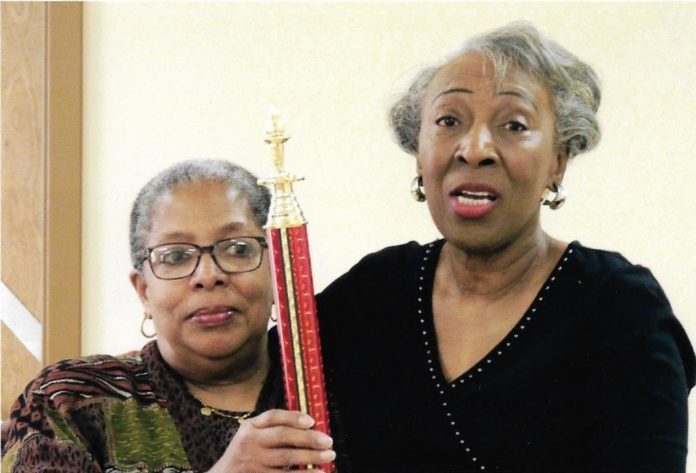So… an aging parent begins to slip into the gloomy abyss of dementia. Say, a mother. At first, forgetting little things like where she laid the car keys are easily hidden. But the disease gradually starts to encroach on the simplest of tasks. A drive to the neighborhood “dollar store” takes her on a confused trek of winding streets that suddenly are unfamiliar.
The family gets a call from Southaven, Miss., 32 miles from home, to “come and get” Mother. She is now back home – safe, this time. But Mother is confused and doesn’t know who her spouse is or her children.
From that point on, everyone’s life has changed forever. There is no other choice – some plan of care must be devised.
Despite some taking on various roles of assistance, one person will, more likely than not, emerge as the primary caregiver. Did they pull the proverbial short straw in some grand lottery of the universe?
One woman says “no.” One very special woman says, “not even close.”
“Anyone who is a primary caregiver for a loved one with Alzheimer’s has been chosen by God,” according to Imogene Stansbury, founder and past director of the Alzheimer’s Caregiver Support Group at St. Andrew AME Church.
“Our motto is, ‘Caregiving is a blessing, not a burden.’”
It all started nearly 20 years ago when Stansbury was rebuilding her life after years of caring for her Alzheimer’s-stricken mother. In addition to other serious health issues, Stansbury weathered the emotional trauma of not being recognized by her own mother.
“I was a role that was thrust upon me, although there were other siblings,” she said. “After Mother passed, I realized that there were others, many, many others, who were experiencing the very same thing. They are not aware of the help and resources that are out there, just like I didn’t know. I thought I had to figure it out on my own.”
Stansbury began to envision a system of support comprised of a network of former, current, and future caregivers who would all interact to educate, support, help, and share to lighten the load.
It would be an Alzheimer’s support group of caregivers. She went to her pastor, the Rev. Kenneth Robinson, at St. Andrew AME Church, to share “what the Lord had given her to do.”
“Pastor Robinson asked me for a mission statement,” said Stansbury. “That was the beginning. Caregivers in our church and from all over the city, starting that day in 1999 to the present, have been helped.
“They have had an entire network of caring people walking along side to support and offer some measure of assistance. Sometimes, it’s as simple as volunteering to be a sitter to offer the caregiver a free day to just get out and take a drive or go see a movie.”
The group meets the last Saturday in the month on the campus of St. Andrew AME. Hundreds helped and made better, more knowledgeable caregivers because of one woman. Otherwise, caregiving for an Alzheimer’s patient is “a very lonely place.”
“You become isolated caring for a person who may not even know who you are,” said Stansbury. “Some even take on personality changes and exhibit characteristics which were not there before the disease took over. Some Alzheimer’s begin using profanity or becoming very angry and belligerent when normally, they have always been quite agreeable and pleasant, for the most part.
“When very devastating changes came about when I was taking care of Mother, it felt like a death. Long before she actually died physically, she was already gone. I call the disease ‘breathing while dead.’ The person who once was is no more. There is no quality of life. When she passed, people wondered that I did not cry. That’s because I had already cried so many tears. I lost her long before that.”
Today, St. Andrew’s Alzheimer’s Caregiver Support Group is under the direction of Stansbury’s successor, Anne Thompson.
“I’m still very much involved, but last year, I passed the torch to Anne. From the second meeting we held as a group, she has been there. So she knows the heart and the spirit of what we want to continue doing for caregivers.
Moving forward, we want to get more young people involved,” said Thompson. “Caregivers in the near future will be getting younger and younger with the weight of that tremendous responsibility. We want them to know we will be there for them. God helping us, we will always be there to share both the laughs and the tears.”




